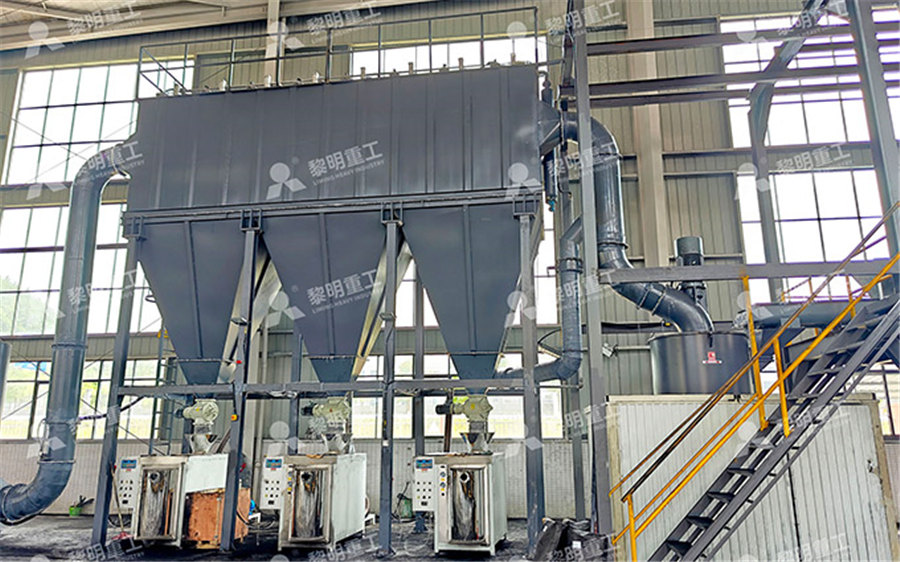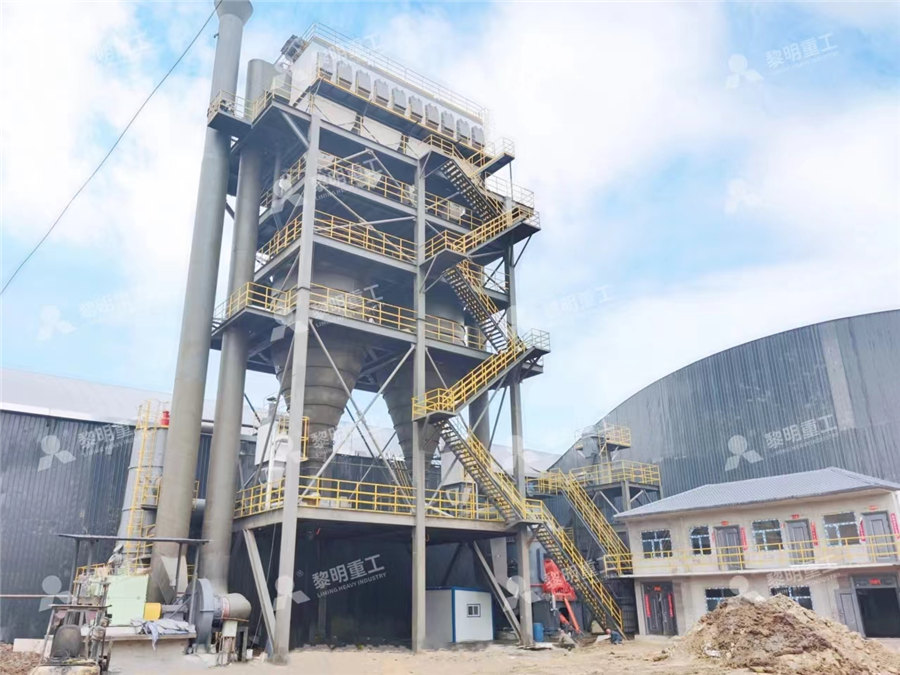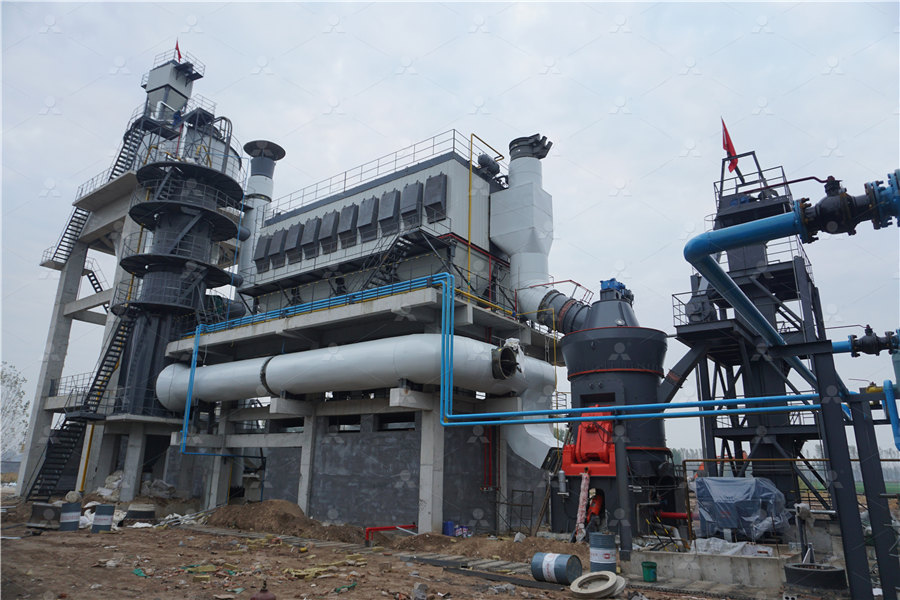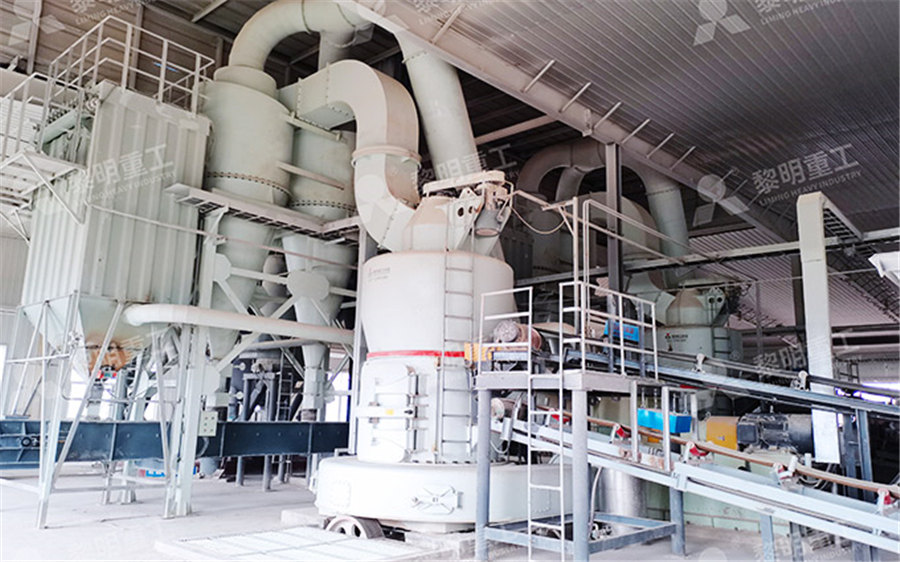
Calcium oxide is used in power plants
.jpg)
Thermochemical energy storage using calcium oxide
• Using concentrated solar power plants to convert calcium hydroxide into calcium oxide • Transporting and distributing the produced calcium oxide to the places of use • Production of thermal energy in places that require it by hydrating calcium oxide using water in a2023年11月15日 Calcium hydroxide has an equilibrium temperature of about 500 °C, which is a bit lower than the temperature of the power blocks currently used in concentrating plants, around 600 °C, and has a stable multicyclic conversion, with high conversion values in the range of Integration of calcium looping and calcium hydroxide 2019年2月1日 The integration of the Calcium Looping process for thermochemical energy storage in Concentrated Solar power Plants is expected to reduce electricity production costs and enhance dispatchability A main drawback for this purpose is the limited conversion and poor Highperformance and lowcost macroporous calcium oxide 2015年12月1日 The present study relates to the preparation of mixed calcium oxidealumina compositions as candidate materials for a cyclic thermochemical hydrationdehydration scheme at moderate to highCalcium oxide based materials for thermochemical heat storage in
.jpg)
The CalciumLooping (CaCO3/CaO) process for thermochemical
2019年7月16日 Energy storage based on thermochemical systems is gaining momentum as a potential alternative to molten salts in Concentrating Solar Power (CSP) plants This work is a detailed review about2022年10月27日 In the coal gasified under H 2 atmosphere, calciumlooping enhance the WGS reaction, leading to higher H 2riched syngas , which served as a basis for developing highly efficient, zeroemission power plants Calciumlooping for both a precombustion CO 2 capture Calciumlooping based energy conversion and storage for carbon 2018年2月9日 In the CaL process for CO 2 capture, the CO 2 loaded flue gas is used to fluidize a bed of CaO particles at temperatures around ~ 650 °C The carbonated particles are then circulated into a calciner reactor wherein the CaO solids are regenerated at temperatures near The Calooping process for CO2 capture and energy storage: role As a thermochemical energy storage system (TCES), the CaL process can be integrated in renewable power plants, eg Concentrating Solar Power (CSP) plants, to increase the dispatchability of the system The process would work as follows: solar thermal power is used Scalingup the CalciumLooping Process for CO2 Capture and

FlueGas Desulphurization an overview ScienceDirect Topics
Most FGD technologies use an alkali sorbent, such as limestone (calcium carbonate), quicklime (calcium oxide), hydrated lime (calcium hydroxide), BR can be neutralised by applying fluegas desulfurisation, a process used in coal power plants to bind sulfur oxides with the aim to 2022年11月25日 A detailed description of coal fly ashbased thermal power plants, fly ash production, and utilization is provided less than 70% and contains calcium greater than 5%, it is class C fly ash(PDF) Status of CoalBased Thermal Power Plants, Answer to 8 Calcium oxide is used to remove sulfur dioxide Science; Chemistry; Chemistry questions and answers; 8 Calcium oxide is used to remove sulfur dioxide generated in coalburning power plants according to the following reaction 2CaO(s)+2SO2(g)+O2(g)→2CaSO4(s What mass of calcium oxide is required to react completely with 14×103 L of sulfur dioxide?Solved 8 Calcium oxide is used to remove sulfur dioxide CheggCalcium oxide is used to remove sulfur dioxide generated in coal burning power plants according to the following reaction The following reaction is performed at STP 2CaO(s) + 2SO2(g) + O2(g) > 2CaSO4(s) What mass of calcium oxide is required SOLVED: Calcium oxide is used to remove sulfur dioxide

Modeling based on machine learning to investigate flue gas
2024年1月10日 Flue gas desulfurization (FGD) is a critical process for reducing sulfur dioxide (SO2) emissions from industrial sources, particularly power plants This research uses calcium silicate absorbent 2023年11月15日 Energy storage is a key factor in the development of renewablesbased electrical power systems In recent years, the thermochemical energy storage system based on calciumlooping has emerged as an alternative to molten salts for energy storage in hightemperature concentrated solar power plantsThis technology still presents some challenges Integration of calcium looping and calcium hydroxide Question: Calcium oxide is used to remove sulfur dioxide generated in coal burning power plants according to the following reaction The following reaction is performed at STP 2CaO(s) + 2SO2(g) + O2(g) > 2CaSO4(s) What mass of calcium oxide is required to react completely with 612 liters of sulfur dioxide?Solved Calcium oxide is used to remove sulfur dioxide CheggCalcium oxide is used to remove sulfur dioxide generated in coalburning power plants, according to the following reaction \[2 \ce{CaO} \left( s \right) + 2 \ce{SO2} \left( g \right) + \ce{O2} \left( g \right) \rightarrow 2 \ce{CaSO4} \left( s \right)\nonumber \] What mass of calcium oxide is required to react completely with \(14 \times 126: MassVolume Stoichiometry Chemistry LibreTexts
.jpg)
Calcium Oxide an overview ScienceDirect Topics
Scopes of green synthesized metal and metal oxide nanomaterials in antimicrobial therapy Badal Kumar Mandal, in Nanobiomaterials in Antimicrobial Therapy, 2016 913 CaO NPs Calcium oxide (CaO) NPs can be used as bactericides, adsorbents, and in particular as destructive adsorbents for toxic chemical agents (Koper et al, 1993, 1997), because it has relatively less In the plant proposed, CO 2 is captured via carbonation of calcium oxide As shown in Fig1, CO 2 rich flue gas from an air fired coal boiler is contacted with CaO in a fluidized bed reactor Coalfired power plant with calcium oxide carbonation for 2009年2月1日 In the plant configuration discussed in this paper, CO2 rich flue gas from an air fired coal boiler is contacted with CaO in a fluidized bed reactor (carbonator) generating CaCO3 and capturing Coalfired power plant with calcium oxide 2015年7月27日 The share of SO 2 emissions comes from the use of coal and oil in fossilfired power plants, in industrial combustion units, (CH 4), using an aluminum and calcium oxide catalyst, and forms hydrogen sulfite and sulfur In the second stage, the hydrogen sulfite and the rest of sulfur dioxide are converted to elemental sulfurReview of Design, Operating, and Financial Considerations in
.jpg)
Calcium Oxide: From Ancient Warfare to Modern
2021年5月20日 Calcium oxide (and calcium hydroxide) is also an important chemical for raising the pH of potable water and wastewater during its treatment However, there are different methods used to utilize quicklime during the 2018年11月20日 Calcium and/or magnesium bearing minerals are suitable for CO 2 fixation and utilization Industrial wastes from coalburning power plants can also be used for CCUS through carbonation, as they can contain calcium and/or magnesium oxides or silicate mineral residues (FernándezBertos et al, 2004)Carbonation of highcalcium fly ashes and its potential for Uses of Calcium Oxide Calcium oxide, also known as quicklime, is a versatile and widely used chemical compound with various applications in our daily lives It is produced by heating limestone or shells at high temperatures and is commonly used in industries such as steelmaking, construction, agriculture, and more10 Uses of Calcium Oxide in Daily Life Nanografi Nano TechnologyCalcium oxide (formula: Ca O), commonly known as quicklime or burnt lime, is a widely used chemical compoundIt is a white, caustic, alkaline, crystalline solid at room temperatureThe broadly used term lime connotes calciumcontaining inorganic compounds, in which carbonates, oxides, and hydroxides of calcium, silicon, magnesium, aluminium, and iron predominateCalcium oxide Wikipedia

Thermochemical energy storage using calcium oxide
• Transporting and distributing the produced calcium oxide to the places of use • Production of thermal energy in places that require it by hydrating calcium oxide using water in a liquid state • Transporting calcium hydroxide to the solar power plants to convert it back into calcium oxideOn the other hand, if it is necessary to lower the hardness of the water it can be subjected to a process of decarbonation, avoiding precipitates and the incrustation of calciumcarbonateFor this application, the chemical products used are calciumoxide (CaO) or calcium hydroxide (Ca(OH) 2), added in suspension (lime milk) or dissolved (lime water), bringing about the precipitation The functions of lime in water treatment CALCINOR Minerales industrialesHint :We know that to reduce the percent $ S{{O}{2}} $ in environment and to produce a byproduct with $ S{{O}{2}} $ , to control air pollutionThe present work envisages a situation that compares the efficiency of three different reagents Complete Step By Step Answer: As we know, the sodium hydroxide, hydrated lime and stuff of the water treatment plant containing $ CaO $ Calcium oxide, $ CaO $ is used to remove $ S{{O}{2}} $ from power 2015年12月1日 The present study relates to the preparation of mixed calcium oxide–alumina compositions as candidate materials for a cyclic thermochemical hydration–dehydration scheme at moderate to high temperatures (eg 400–600 °C) that can offer the possibility of short and long term energy storage, particularly suitable for concentrated solar power installationsCalcium oxide based materials for thermochemical heat storage

Indirect power cycles integration in concentrated solar power plants
2023年10月1日 Thermochemical energy storage is attracting interest as a relevant alternative energy storage system in concentrating solar power plantsEfficient, lowcost, and environmentally friendly thermal energy storage is one of the main challenges for the largescale deployment of solar energy The reversible hydration/dehydration process of calcium oxide is one of the most 2019年2月1日 Highperformance and lowcost macroporous calcium oxide based materials for thermochemical energy storage in concentrated solar power plants Author links open overlay panel Pedro E Sánchez Jiménez a , Antonio Perejón b , Mónica Benítez Guerrero a , José M Valverde c , Carlos Ortiz c , Luis A Pérez Maqueda aHighperformance and lowcost macroporous calcium oxide Calcium oxide has a moderate effect on colour, except in large amounts when it may have a bleaching effect on iron oxide It also exists in the colour of kaki/tomato reds Preparation of Calcium Oxide Calcium oxide can be Calcium Oxide (CaO) Preparation, Properties Uses 2024年8月19日 Calcium oxide (CaO) is an ionic compound formed by the electrostatic attraction between calcium cations (Ca2+) and oxide anions (O2) It is a metal oxide, and when combined with water, it forms calcium hydroxide, a basic oxide Calcium oxide has various applications, including in the production of lime, quicklime, and cementCalcium Oxide: Properties, Applications, and Chemical Reactions
.jpg)
Highperformance and lowcost macroporous calcium oxide based materials
2019年2月1日 Highperformance and lowcost macroporous calcium oxide based materials for thermochemical energy storage in concentrated solar power plants Author links open overlay panel Pedro E Sánchez Jiménez a , Antonio Perejón b , Mónica Benítez Guerrero a , José M Valverde c , Carlos Ortiz c , Luis A Pérez Maqueda a2020年2月4日 Semidry flue gas desulfurization (FGD) technology is used by some coalbased power plants to remove sulfur dioxide from flue gas In semidry FGD systems, SO2 is removed by calciumbased sorbents in a reactive spray dryer, but the level of desulfurization is lower than in wet FGD systems This work evaluates the effects of seven additives in the desulfurization Effect of Additives to Improve CalciumBased Sorbents in2020年5月16日 Recently, aniline, an aromatic amine, is widely employed in fossilfueled power plants for SO 2 absorption producing metal oxides such as calcium oxide (CaO), magnesium oxide (MgO), and both CaO and MgO, respectively The metal oxides obtained can achieve very high SO 2 removal efficiency, up to 100%Sulfur dioxide removal: An overview of regenerative flue gas Find stepbystep Chemistry solutions and the answer to the textbook question Calcium oxide (CaO) is used to remove sulfur dioxide generated by coalburning power stations: $$ \begin{align*} 2\;\mathrm{CaO}(s)+2\;\mathrm{SO2}(g)+\mathrm{O2}(g)\rightarrow2\;\mathrm{CaSO4}(s) Calcium oxide (CaO) is used to remove sulfur dioxide generat
.jpg)
CO2 Capture by Calcium Looping at Relevant Conditions for Cement Plants
Calcium looping technology has a high potential for capturing CO2 in cement plants as the CaOrich purge from the calciner can be used to replace a sizable fraction of the CaCO3 used as feedstock Integrating the CaL process into the cement plant requires the carbonator reactor to operate under new conditions (ie, a higher carbonator CO2 load, a more active sorbent, 2023年2月11日 Chen [] made statistics on the main physical phases of CDA from steel plant sintering machines and coalfired power plants, and the results are shown in Table 2Among the many components, CaSO 3 contains the highest percentage, which is generated by the reaction between SO 2 and lime in the flue gas The CaCO 3 content is also higher because the flue Resource utilization of flue gas calciumbased desulfurization ash: Most FGD technologies use an alkali sorbent, such as limestone (calcium carbonate), quicklime (calcium oxide), hydrated lime (calcium hydroxide), BR can be neutralised by applying fluegas desulfurisation, a process used in coal power plants to bind sulfur oxides with the aim to FlueGas Desulphurization an overview ScienceDirect Topics2022年11月25日 A detailed description of coal fly ashbased thermal power plants, fly ash production, and utilization is provided less than 70% and contains calcium greater than 5%, it is class C fly ash(PDF) Status of CoalBased Thermal Power Plants,

Solved 8 Calcium oxide is used to remove sulfur dioxide Chegg
Answer to 8 Calcium oxide is used to remove sulfur dioxide Science; Chemistry; Chemistry questions and answers; 8 Calcium oxide is used to remove sulfur dioxide generated in coalburning power plants according to the following reaction 2CaO(s)+2SO2(g)+O2(g)→2CaSO4(s What mass of calcium oxide is required to react completely with 14×103 L of sulfur dioxide?Calcium oxide is used to remove sulfur dioxide generated in coal burning power plants according to the following reaction The following reaction is performed at STP 2CaO(s) + 2SO2(g) + O2(g) > 2CaSO4(s) What mass of calcium oxide is required SOLVED: Calcium oxide is used to remove sulfur dioxide2024年1月10日 Flue gas desulfurization (FGD) is a critical process for reducing sulfur dioxide (SO2) emissions from industrial sources, particularly power plants This research uses calcium silicate absorbent Modeling based on machine learning to investigate flue gas 2023年11月15日 Energy storage is a key factor in the development of renewablesbased electrical power systems In recent years, the thermochemical energy storage system based on calciumlooping has emerged as an alternative to molten salts for energy storage in hightemperature concentrated solar power plantsThis technology still presents some challenges Integration of calcium looping and calcium hydroxide

Solved Calcium oxide is used to remove sulfur dioxide Chegg
Question: Calcium oxide is used to remove sulfur dioxide generated in coal burning power plants according to the following reaction The following reaction is performed at STP 2CaO(s) + 2SO2(g) + O2(g) > 2CaSO4(s) What mass of calcium oxide is required to react completely with 612 liters of sulfur dioxide?Calcium oxide is used to remove sulfur dioxide generated in coalburning power plants, according to the following reaction \[2 \ce{CaO} \left( s \right) + 2 \ce{SO2} \left( g \right) + \ce{O2} \left( g \right) \rightarrow 2 \ce{CaSO4} \left( s \right)\nonumber \] What mass of calcium oxide is required to react completely with \(14 \times 126: MassVolume Stoichiometry Chemistry LibreTextsScopes of green synthesized metal and metal oxide nanomaterials in antimicrobial therapy Badal Kumar Mandal, in Nanobiomaterials in Antimicrobial Therapy, 2016 913 CaO NPs Calcium oxide (CaO) NPs can be used as bactericides, adsorbents, and in particular as destructive adsorbents for toxic chemical agents (Koper et al, 1993, 1997), because it has relatively less Calcium Oxide an overview ScienceDirect TopicsIn the plant proposed, CO 2 is captured via carbonation of calcium oxide As shown in Fig1, CO 2 rich flue gas from an air fired coal boiler is contacted with CaO in a fluidized bed reactor Coalfired power plant with calcium oxide carbonation for













